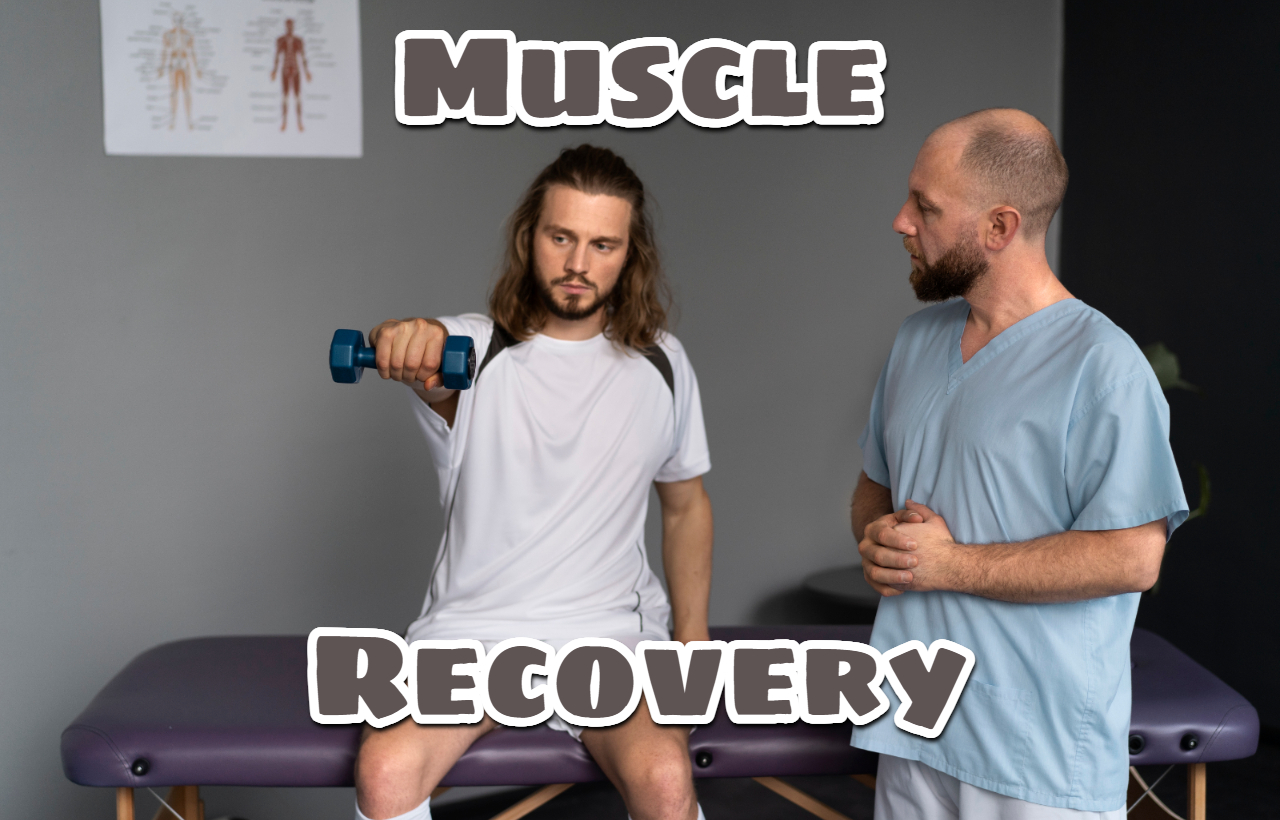Muscle recovery is an essential part of any fitness routine, allowing your body to repair, rebuild, and become stronger after exercise. Whether you’re a seasoned athlete or just starting out, understanding effective muscle recovery techniques can significantly improve your performance and reduce the risk of injury. This article will cover key strategies, foods, and exercises to speed up recovery, along with a helpful table to understand muscle recovery time by age.
Why is Muscle Recovery Important?
During exercise, muscles undergo stress and develop tiny tears in the fibers. Recovery is the process through which these fibers repair, grow stronger, and adapt to the physical demands placed on them. However, improper recovery can lead to causes of poor muscle recovery, such as overtraining, fatigue, or even long-term injuries.
By incorporating the most effective muscle recovery techniques, you can ensure quicker recovery, improved performance, and reduced soreness.

Techniques for Faster Muscle Recovery
1. Nutrition for Recovery
Eating the right foods is crucial for muscle repair. Proteins help rebuild muscle tissue, while carbohydrates replenish glycogen stores.
Examples of Muscle Recovery Foods:
- Protein: Eggs, chicken, fish, beans, lentils
- Carbohydrates: Brown rice, quinoa, sweet potatoes
- Healthy Fats: Avocado, nuts, seeds
- Antioxidants: Spinach, berries, green tea
Muscle Recovery Food Table
| Food Category | Examples | Benefits |
|---|---|---|
| Proteins | Chicken, beans, eggs | Rebuild muscle tissue |
| Carbs | Oats, quinoa, fruits | Replenish glycogen levels |
| Fats | Nuts, seeds, avocado | Reduce inflammation |
| Antioxidants | Blueberries, spinach | Combat oxidative stress |
2. Hydration
Water is essential for transporting nutrients to muscles and flushing out toxins. Dehydration can delay recovery and increase fatigue. Aim to drink at least 2-3 liters daily, depending on activity levels.
3. Rest and Sleep
Sleep is when the body does most of its repairing. Lack of sleep can extend your muscle recovery time by age. Adults should aim for 7-9 hours of quality sleep every night.
4. Massage Therapy
Massage helps relax tight muscles, improves blood circulation, and reduces soreness. Foam rolling can also be an excellent self-massage technique.
5. Muscle Recovery Supplements
Supplements like whey protein, branched-chain amino acids (BCAAs), and omega-3 fatty acids can help repair muscle fibers and reduce inflammation.
6. Stretching and Mobility Exercises
Dynamic stretching before workouts and static stretching post-workout can enhance flexibility, reduce tightness, and promote recovery.
7. Cold and Heat Therapy
Alternating cold and heat therapy helps reduce inflammation and increase blood flow. Ice baths and heating pads are commonly used for this.
8. Active Recovery
Engaging in light activities like walking, yoga, or swimming promotes blood flow, delivering nutrients to muscles and removing toxins.
Muscle Recovery Time by Age
Muscle recovery time varies with age due to differences in metabolism, hormone levels, and muscle mass. Here’s a quick chart to understand recovery times better:
| Age Group | Average Muscle Recovery Time | Notes |
|---|---|---|
| Teens (13-19) | 12-24 hours | Fast recovery due to high metabolism |
| 20s-30s | 24-48 hours | Optimal muscle repair rate |
| 40s-50s | 48-72 hours | Slower recovery, muscle loss starts |
| 60+ | 72+ hours | Focus on nutrition and rest |
How to Recover Muscles Faster After Workout
- Fuel Up Immediately: Consume a protein-rich snack within 30 minutes post-exercise.
- Stay Active: Light activities promote circulation and recovery.
- Use Recovery Tools: Foam rollers and massage guns are excellent aids.
- Monitor Recovery Time: Refer to the muscle recovery time chart to avoid overtraining.
- Listen to Your Body: Rest when needed to prevent fatigue and poor recovery.
Common Causes of Poor Muscle Recovery
- Overtraining: Exercising without adequate rest periods.
- Poor Diet: Lack of essential nutrients delays muscle repair.
- Inadequate Sleep: Less than 6 hours of sleep hampers recovery.
- Dehydration: Insufficient water intake slows recovery processes.
- Age Factors: Older individuals need more time to recover.
Effective Muscle Recovery Exercises
- Yoga: Reduces muscle tension and improves flexibility.
- Swimming: A low-impact way to enhance blood circulation.
- Walking: Eases muscle stiffness without overexertion.
- Stretching Routines: Maintain a balance of dynamic and static stretches.
Download the PDF Guide
For a more detailed approach, download our free guide: Effective Muscle Recovery Techniques PDF.
FAQs
1. What helps muscles recover faster?
Eating protein-rich foods, staying hydrated, sleeping well, and using recovery tools like foam rollers or massage guns.
2. How to recover sore muscles faster?
Incorporate active recovery exercises, apply heat and cold therapy, and consume anti-inflammatory foods.
3. What are the best muscle recovery supplements?
Whey protein, BCAAs, creatine, and omega-3 supplements are highly effective.
4. Does age affect muscle recovery time?
Yes, older adults typically experience slower recovery. Refer to the muscle recovery time chart to tailor your routine.
5. What are the most effective muscle recovery techniques?
Combining proper nutrition, hydration, sleep, and stretching exercises yields the best results.
6. How to recover muscles faster after a workout?
Consume a post-workout meal with protein and carbs, stay active, and ensure enough rest.


